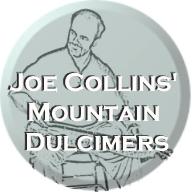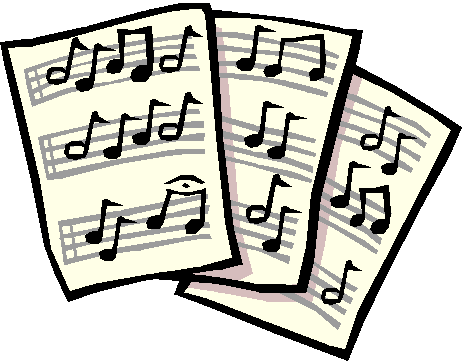 Free
Tablature Downloads from Joe Collins
Free
Tablature Downloads from Joe Collins
Each month, a new set of two or more high quality dulcimer tabs will be available on this page. Please do not sell or mass distribute these tabs either in print or over the Internet. I am making them available for individuals and for dulcimer clubs that wish to use them in their meetings. If you like my tab, I hope you will consider purchasing some of my tablature books.
Index for this page (Click and go to the section you want)
The
featured tabs for the month
Instructions for printing featured tabs
I want to be notified when new tabs are posted
Sound files for the featured tabs
A club where these tabs are played
Simply click the title below to
download the tab file. If you have been to my site before, you may have
to click on the "Refresh" icon (a circular arrow or two arrows chasing
each other) in order to get the updated page with the newly posted
tablature. If you do not have Acrobat
Reader or another pdf reader on your computer,
see instructions below.

“We Plow the Fields” was written by Matthias Claudias, the
son of a Lutheran Pastor in late 18th century Germany. The tune was published
in 1800 by Johann Schulz. My intent for this free tab is let you experiment
with different ways to play this hymn so you can broaden your skills. Below are
links to four different tabs of the same song.
We Plow the Fields (DGd tuning) – Key of G
We Plow the Fields (DAd tuning with Capo of
3rd fret) – Key of G
We Plow the
Fields (DAd tuning) a cross-picked version – lower octave
We Plow the
Fields (DAd tuning) a linear version – higher octave
Get on my e-mail notification list
If you would like to be notified by e-mail whenever I post new tablature, please place your e-mail address in the box below and click on subscribe.
Once you are on my e-mail list, you will receive a notification about once a month. Many of the people on my list are within driving distance of Shelby, NC so you may receive a couple of e-mails per year concerning dulcimer workshops and events in Shelby. If you are not within driving distance, please forgive me.
Tips on Reading My Tablature
Different authors use different conventions when writing out tablature. I have chosen to do mine in a way that is easy for beginners to use. First of all, the numerals that are in bolder, larger print represent the melody of the tune. If you do not play chords, you can simply use one finger (or more) to play only the melody notes with your noting hand while strumming all the strings.
If you do choose to the play the chords I suggest, realize that I do not put down the complete chord for every single note. I feel like doing so clutters the page with too many numerals. When you change into a chord (designated above the musical notes by letters - D, A, Bm, F#m, etc.), I assume that you will hold that chord until the next chord change. In other words, all fingers will stay in the same position except the ones for which the numerals change until the next chord change. When one numeral is listed for a note, it does not mean that you can hit only that string. Provided you keep the chord position that is listed under the most recent chord name, you can continue hitting all the strings.
Occasionally I will use an "X". This means to avoid hitting that string at all. Otherwise, it does not hurt to strum all the strings.
The tabs are in pdf format. If your computer does not presently have a pdf reader, one is available free of charge at the click of a button below. Just click and follow directions. You will then be able to read and print out the files using Acrobat Reader.
Click the box to download the reader necessary for reading and printing the tabs.
Do you need to hear the song in order to learn it? I know that for me, it is easier to learn a song if I can hear how it goes first. You can download the following files. They are in a midi format and can be played on a windows media player. The sound files are generally played at a slower pace than I would normally play them. If you are using an Apple product to listen and you cannot play the file, Click HERE for some help.
We Plow the Fields - Key of GWe Plow the Fields - Key of D
If you are using an Apple device and can't hear the file, CLICK HERE for help.
The Foothills Dulcimer Club
The Foothills
Dulcimer Club of Shelby, NC meets once a
month. The featured tabs for the meeting are the same ones as on
this
site. Please click on the button below to find out more about the
club,
its meeting times, etc. We'd love to have you come and join us!
Go to Foothills Dulcimer Club page
Back to Home Page